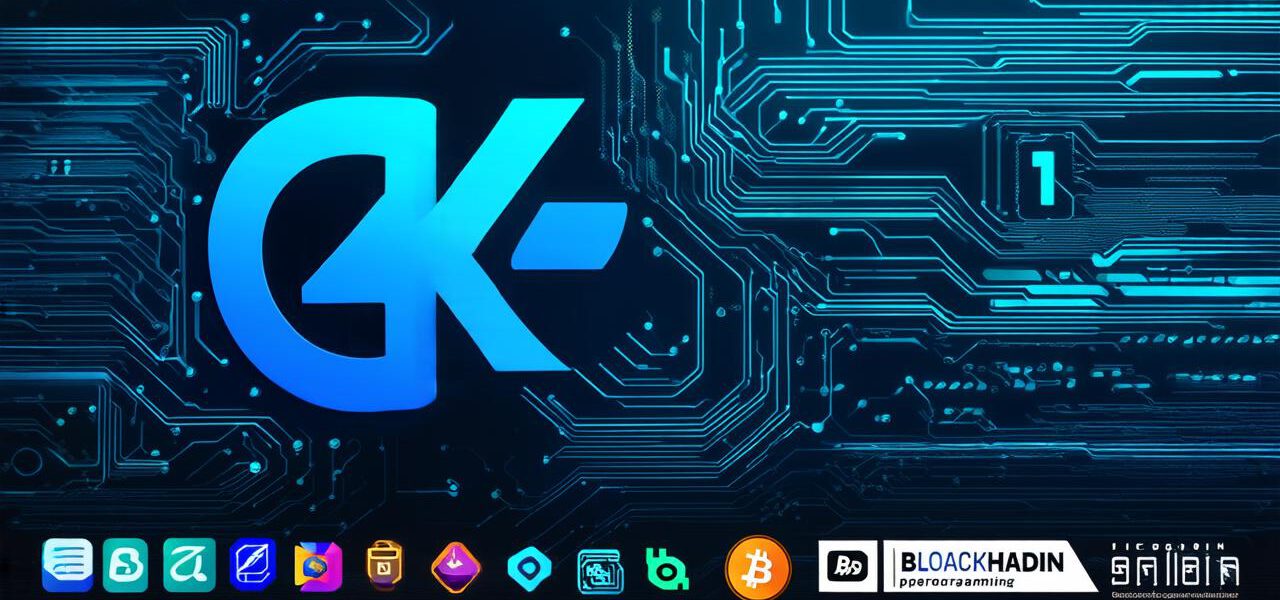
What programming languages are used in blockchain technology development?
1. Solidity
Solidity is a Turing-complete language that was specifically designed for building smart contracts on the Ethereum network. It has several advantages over other programming languages, including its ability to handle complex computations and transactions securely. Smart contracts are self-executing programs that run automatically when certain conditions are met, making them an ideal choice for a wide range of applications such as supply chain management, voting systems, and decentralized finance (DeFi).
One of the key features of Solidity is its ability to handle multiple currencies and tokens. It also has built-in support for cryptographic functions, which makes it easy to secure transactions and prevent fraud. Additionally, Solidity is compatible with a wide range of hardware platforms, including ARM, x86, and MIPS.
2. Python
Python is another popular programming language used in blockchain development due to its simplicity and ease of use. It has a vast library of modules and frameworks that can be used to build blockchain applications quickly. Some popular Python libraries for blockchain development include PyEthereum, Web3.py, and Truffle.
Python is also widely used in the cryptocurrency industry for tasks such as mining, trading, and wallet development. Its versatility makes it a popular choice among developers who want to quickly prototype and test new ideas.
One of the challenges faced by Python developers is its slower execution speed compared to other programming languages like C++ and Rust. This can be mitigated by optimizing code and using appropriate data structures.
3. Java
Java is known for its portability and scalability, making it ideal for building large-scale blockchain applications. Some popular Java frameworks used in blockchain development include Hyperledger Fabric, Corda, and Quorum.
Java is also commonly used in enterprise blockchain solutions due to its robustness and security features. It has built-in support for encryption and secure communication protocols, making it easy to build secure blockchain applications.
One of the challenges faced by Java developers is its verbosity, which can make code harder to read and maintain. This can be overcome by using appropriate coding conventions and refactoring code as needed.
4. C++
C++ is a powerful programming language that is often used in the development of high-performance blockchain applications due to its low-level access to hardware resources. However, it is also known for its steep learning curve and complexity, which can make it challenging for beginners to use.
C++ is commonly used in the development of Bitcoin mining software due to its ability to handle complex computations quickly. It is also used in the development of other cryptocurrency mining software such as Ethereum and Litecoin.
One of the challenges faced by C++ developers is the risk of memory leaks, which can cause programs to crash or behave unpredictably. This can be mitigated by using smart pointers and proper memory management techniques.
5. Kotlin
Kotlin is a modern programming language that was developed by JetBrains. It is designed to be concise, expressive, and safe, making it an ideal choice for building blockchain applications. Kotlin is fully interoperable with Java and can run on the Java Virtual Machine (JVM).
Kotlin has gained popularity in the blockchain industry due to its ability to handle large-scale applications with ease. It also has built-in support for asynchronous programming, making it easy to build scalable and efficient smart contracts.
One of the challenges faced by Kotlin developers is the lack of established libraries and frameworks compared to other programming languages like Java and Python. This can be overcome by building custom libraries and leveraging existing open-source projects.
6. Rust
Rust is a systems programming language that was developed by Mozilla. It is designed to be safe, fast, and concurrent, making it an ideal choice for building high-performance blockchain applications. Rust has built-in support for memory safety and concurrency, which makes it easy to build secure and scalable smart contracts.
Rust is commonly used in the development of Bitcoin and Ethereum mining software due to its ability to handle complex computations quickly. It is also used in the development of other blockchain applications such as Hyperledger and Cosmos.



